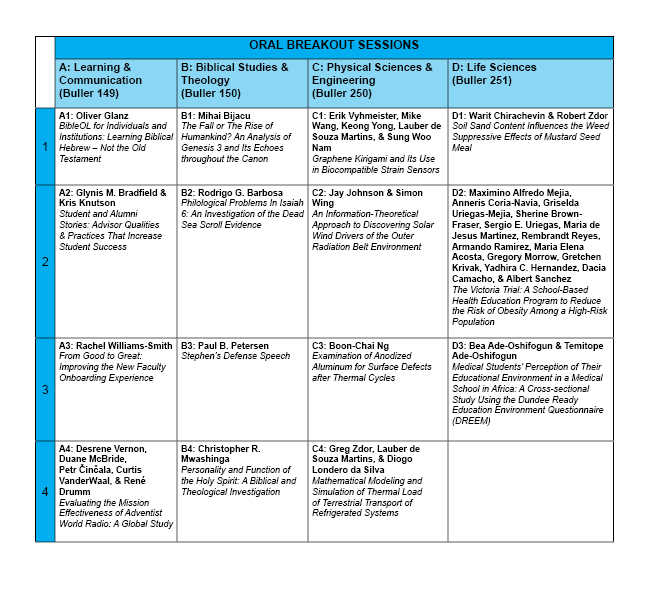Presentation Title
C-4 Mathematical Modeling and Simulation of Thermal Load of Terrestrial Transport of Refrigerated Systems
Presenter Status
Professor, Deparment of Engineering and Computing Science
Preferred Session
Oral Session
Start Date
4-11-2016 3:45 PM
End Date
4-11-2016 4:00 PM
Presentation Abstract
The energy analysis of the refrigerated cargo transport consists in evaluating the degree of degradation suffered by the transported product and the amount of energy required for cooling and convey the cargo. This evaluation is complex, as it involves the maximization of the volume of transported cargo, the reduction of energy consumption and a strict control of temperatures according to the specifications of each product. The higher demand for refrigerated transport is related to food products, although chemical products, flowers, vaccines and even human organs are also transported under refrigerated conditions. The proposed project aims to develop a mathematical model able to estimate the energy consumption associated with the transport of refrigerated cargo. The model will be based on the first law of thermodynamics and consider design parameters and operational conditions as travel time, average vehicle speed, the average solar radiation incident on the refrigerated compartment, the dimensions and properties of thermal insulation, as well as the absorptivity and emissivity of the paint used on the external surfaces. The results of this study will be useful to identify how the design features of a refrigerated body and operating conditions affect the fuel consumption associated with transportation of refrigerated cargo, assisting in energy-efficient and less polluting equipment project.
C-4 Mathematical Modeling and Simulation of Thermal Load of Terrestrial Transport of Refrigerated Systems
The energy analysis of the refrigerated cargo transport consists in evaluating the degree of degradation suffered by the transported product and the amount of energy required for cooling and convey the cargo. This evaluation is complex, as it involves the maximization of the volume of transported cargo, the reduction of energy consumption and a strict control of temperatures according to the specifications of each product. The higher demand for refrigerated transport is related to food products, although chemical products, flowers, vaccines and even human organs are also transported under refrigerated conditions. The proposed project aims to develop a mathematical model able to estimate the energy consumption associated with the transport of refrigerated cargo. The model will be based on the first law of thermodynamics and consider design parameters and operational conditions as travel time, average vehicle speed, the average solar radiation incident on the refrigerated compartment, the dimensions and properties of thermal insulation, as well as the absorptivity and emissivity of the paint used on the external surfaces. The results of this study will be useful to identify how the design features of a refrigerated body and operating conditions affect the fuel consumption associated with transportation of refrigerated cargo, assisting in energy-efficient and less polluting equipment project.



